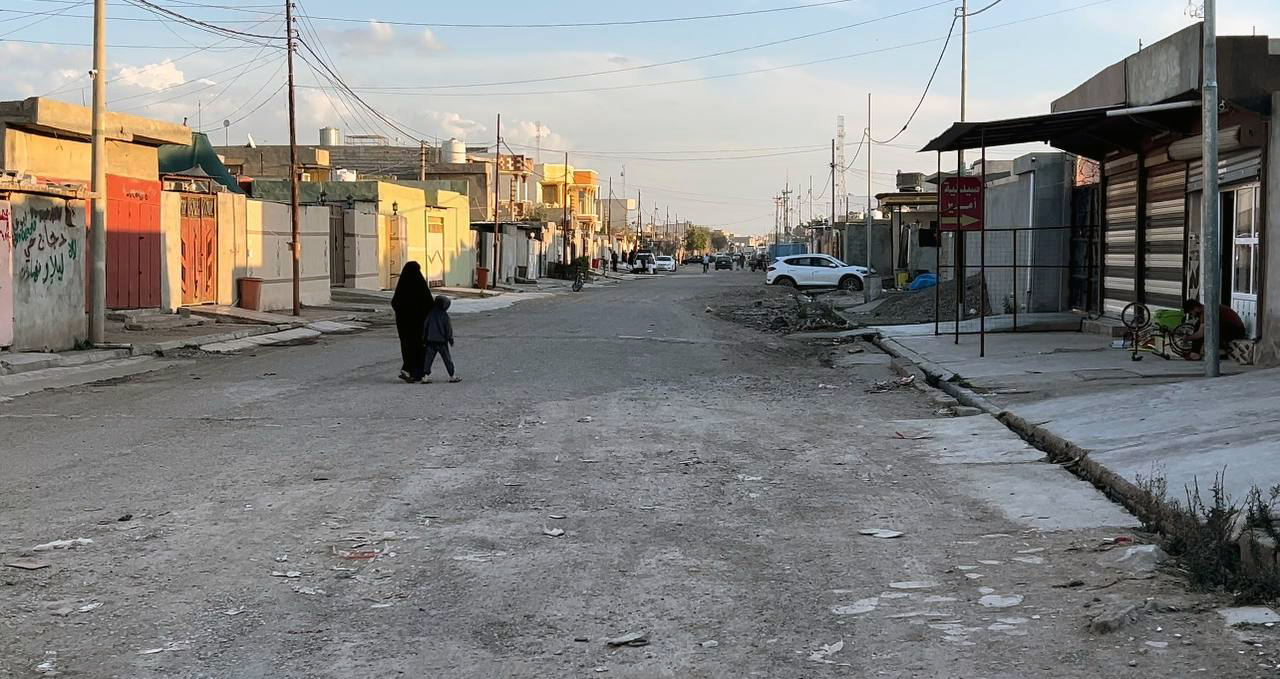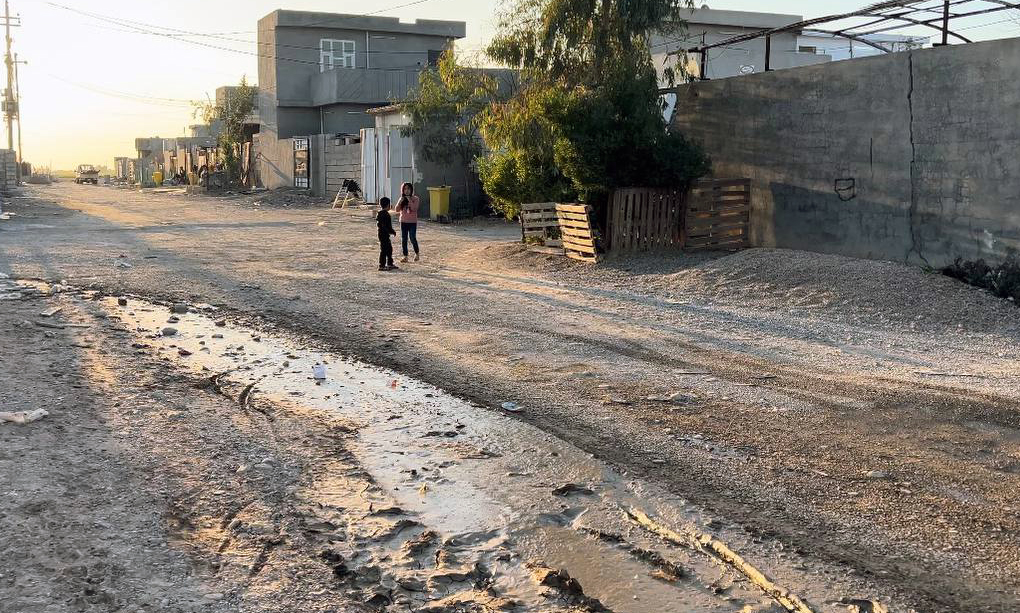After decades of neglect, service projects have arrived for the first time in some of the neighborhoods of Daquq district south of Kirkuk including constructing sewage networks and paving streets.
The service projects supervised by the Daquq Municipality, for which a budget of five billion dinars (USD 3 Million) was allocated, include restoring and paving about 40 main and secondary streets.
Dana Khawada, Director of the Projects Department at the District Municipality, told KirkukNow, “In addition to paving 40 streets, services will be delivered to the neighborhoods of Ashti, Newroz, Imam Hawa, Khoruz and Azadi.”
Daquq, 44 km south of Kirkuk, home to 97,000 people, consist 16 neighborhoods in the center of the District, including the Ashti neighborhood, built in the 1980s, home to about 600 families.
Pasha Karim, a resident of the Ashti neighborhood, says that his area has been deprived of service projects for 27 years, except for some streets built in the 1980s.

A main street in the Ashti neighborhood to be renovated, Kirkuk, April 2024. Muhammad Almas.
“We approached the relevant authorities dozens of times to no avail, but finally the service projects will reach us,” Pasha told KirkukNow.
After 2003, some neighborhoods in Daquq were built on lands considered illegal as it was built over public property without official permission, such as the Newroz neighborhood, which is connected to sewage network services, streets, and sidewalks for the first time.
The director of projects for the Municipality of Daquq says they are implementing service projects in Ashti neighborhood for the first time in 27 years. The sewage network has been dug, and streets and sidewalks will be constructed in the neighborhood, in addition to paving some streets in the Newroz neighborhood.
The northern, oil-rich city of Kirkuk, is home to about 1.7 million Kurds, Turkmen, and Arabs, according to the KRG figures in 2018. Located 238 kilometers north of Baghdad, Kirkuk is an ethnically mixed province and has long been at the center of disputes between Baghdad and the Kurdistan Regional Government KRG.
The disputed territories is a constitutional term used to refer to the political and administrative situation in Kirkuk province and the areas that have been changed in terms of administrative and demographic conditions due to the policies of the Iraqi government from 1968 up to 2003.
Up to the present, only part of the first phase has been implemented, which led to tensions over administrative and security posts, disputes over ownership of lands and farms, and several other issues making it difficult to provide proper public services.






